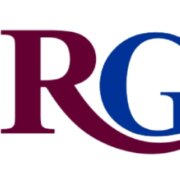Best Lawsuits & Disputes Lawyers in Gaborone
Share your needs with us, get contacted by law firms.
Free. Takes 2 min.
List of the best lawyers in Gaborone, Botswana
Botswana Lawsuits & Disputes Legal Questions answered by Lawyers
Browse our 1 legal question about Lawsuits & Disputes in Botswana and read the lawyer answers, or ask your own questions for free.
- Can I sue ?
- I wanna sue for difirmition of character
-
Lawyer answer by mohammad mehdi ghanbari
Hello,Thank you for your inquiry regarding defamation of character.I understand you are seeking guidance on whether you have grounds to sue. Please note that defamation cases are highly specific to the facts and are governed by the laws of the...
Read full answer
About Lawsuits & Disputes Law in Gaborone, Botswana
Lawsuits and disputes are legal disagreements that necessitate resolution through the judicial system. In Gaborone, Botswana's legal system provides structured pathways to address and resolve such conflicts. This field encompasses a wide range of legal matters including civil disputes, commercial litigation, personal injury claims, family law disputes, and more. Botswana operates under a dual legal system combining Roman-Dutch common law and customary law, making it essential to understand which laws apply to your specific case.
Why You May Need a Lawyer
Engaging a skilled lawyer is crucial in various situations to navigate the complexities of lawsuits and disputes. Common scenarios where legal help may be necessary include:
- Contract disputes between businesses or individuals
- Personal injury claims requiring compensation
- Family law issues such as divorce, child custody, and inheritance disputes
- Disagreements involving property ownership or lease agreements
- Employment disputes including wrongful termination or workplace discrimination
- Commercial litigation involving bankruptcy, business torts, or intellectual property infringements
An experienced lawyer can provide invaluable guidance, represent you in court, and help you achieve a favorable outcome.
Local Laws Overview
Understanding key aspects of local laws in Gaborone, Botswana, is essential for successfully navigating lawsuits and disputes. Some of the important elements include:
- Court System: Botswana's judiciary includes Magistrates' Courts, the High Court, and the Court of Appeal. Each court has specific jurisdictional limits and handles different types of cases.
- Civil Procedure: Civil cases are governed by the Rules of the High Court and Magistrates' Courts, outlining how lawsuits must be initiated and conducted.
- Contract Law: Contractual disputes are often resolved by applying Roman-Dutch common law principles, emphasizing the necessity for clear evidence of breach and resulting damages.
- Family Law: Family disputes such as divorce and custody are handled under the Matrimonial Causes Act and Children’s Act, which prioritize the welfare of children and equitable distribution of marital assets.
- Employment Law: The Employment Act and various labor-related regulations govern employment disputes, including issues of unfair dismissal, workplace safety, and employee rights.
- Customary Law: In some cases, disputes may be resolved under customary law, administered by customary courts, particularly in rural areas.
Frequently Asked Questions
1. What types of disputes can be resolved in court in Gaborone?
Common disputes include civil cases (contract disputes, personal injury claims), commercial litigation, family law matters (divorce, child custody), property disputes, and employment issues.
2. How do I initiate a lawsuit in Gaborone?
Initiating a lawsuit typically involves filing a summons or plaint at the appropriate court. Legal advice is recommended to ensure all procedural requirements are met.
3. How long does a typical lawsuit take to resolve?
The duration can vary widely depending on the complexity of the case, court schedules, and the cooperation of both parties. Some cases may take months, while others could take years.
4. Can I represent myself in court?
While self-representation is permitted, it is not advisable due to the complexities of law and court procedures. Hiring a lawyer can significantly improve the chances of a favorable outcome.
5. What costs are involved in a lawsuit?
The costs can include court fees, legal fees, and other related expenses such as expert witness fees. It’s advisable to discuss these with your lawyer upfront.
6. What is Alternative Dispute Resolution (ADR)?
ADR includes methods such as mediation and arbitration, which provide alternative paths to resolve disputes outside traditional court proceedings. ADR is often quicker and less adversarial.
7. What can I do if I cannot afford a lawyer?
Legal Aid Botswana provides assistance to those who cannot afford legal representation. Additionally, some lawyers may offer pro bono services or flexible payment plans.
8. How are family disputes handled?
Family disputes such as divorce and child custody are addressed under specific laws like the Matrimonial Causes Act and Children’s Act, often prioritizing the welfare of children.
9. Are court decisions in Botswana final?
Decisions can be appealed to higher courts. The High Court can hear appeals from Magistrates' Courts, and the Court of Appeal is the highest appellate court.
10. What role does customary law play in disputes?
Customary law may apply in certain cases, particularly in rural areas or when both parties consent to its jurisdiction. Customary courts handle these matters accordingly.
Additional Resources
For those seeking further information or assistance, the following resources may be helpful:
- Legal Aid Botswana: Provides free or low-cost legal services to eligible individuals.
- Law Society of Botswana: A regulatory body for legal professionals that can provide referrals and information.
- Department of Justice: Offers resources and information on the Botswana judicial system.
- Customary Courts: Handle specific types of disputes under customary law.
Next Steps
If you find yourself involved in a lawsuit or dispute in Gaborone, Botswana, it’s crucial to take proactive steps:
- Consult a Lawyer: Seek advice from a qualified lawyer who specializes in your type of dispute.
- Gather Documentation: Collect all relevant documents, contracts, and evidence related to your case.
- Understand Your Rights: Familiarize yourself with your legal rights and obligations under local laws.
- Consider ADR: Explore alternative dispute resolution methods to potentially avoid lengthy court proceedings.
- Prepare Financially: Discuss costs and payment options with your lawyer to manage legal expenses effectively.
Following these steps can help you navigate the legal process more effectively and improve your chances of a favorable outcome.
Lawzana helps you find the best lawyers and law firms in Gaborone through a curated and pre-screened list of qualified legal professionals. Our platform offers rankings and detailed profiles of attorneys and law firms, allowing you to compare based on practice areas, including Lawsuits & Disputes, experience, and client feedback.
Each profile includes a description of the firm's areas of practice, client reviews, team members and partners, year of establishment, spoken languages, office locations, contact information, social media presence, and any published articles or resources. Most firms on our platform speak English and are experienced in both local and international legal matters.
Get a quote from top-rated law firms in Gaborone, Botswana — quickly, securely, and without unnecessary hassle.
Disclaimer:
The information provided on this page is for general informational purposes only and does not constitute legal advice. While we strive to ensure the accuracy and relevance of the content, legal information may change over time, and interpretations of the law can vary. You should always consult with a qualified legal professional for advice specific to your situation.
We disclaim all liability for actions taken or not taken based on the content of this page. If you believe any information is incorrect or outdated, please contact us, and we will review and update it where appropriate.
Browse lawsuits & disputes law firms by service in Gaborone, Botswana
Gaborone, Botswana Attorneys in related practice areas.
















